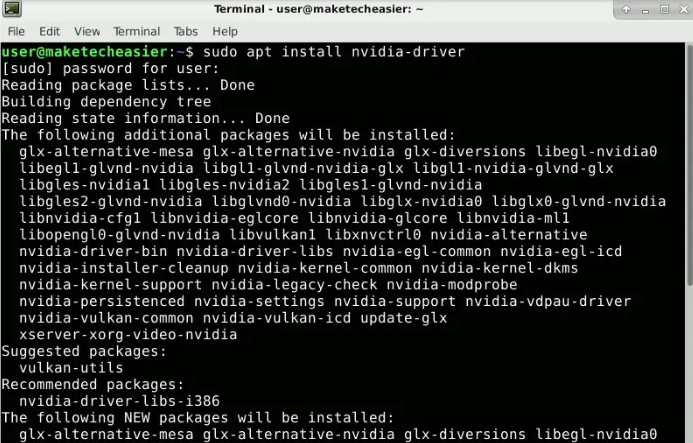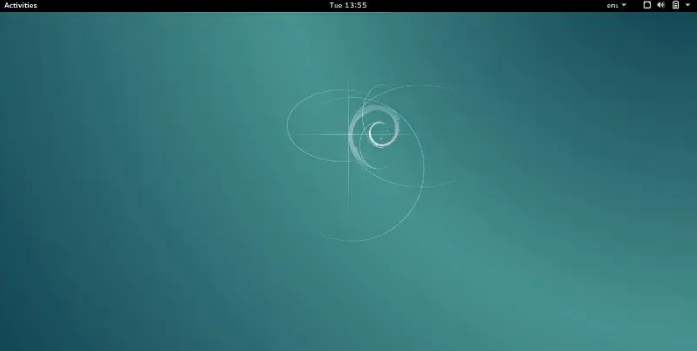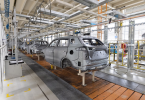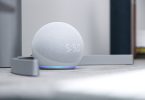Ubuntu actually received a lot of love in its earlier releases. It made many seemingly complicated operations, easier for the beginners just coming into the world of Linux-based distributions. But around the time when the Unity interface was launched, it started to get some hate, too. In this article, we are going to talk about Debian VS Ubuntu – Which one is Best for you. Let’s begin!
Honestly speaking, the interface was not good or bad, it actually did its job well. But it did it differently than what most folks were used to. Then, some other changes, such as inserting ads in the launch menu and changing the interface once again to Gnome. Made some users dislike the distro even more and folks began to look for alternatives, along with one of them being Debian. Since Ubuntu is creates from Debian, the two are actually very similar at the core. However, with the changes Canonical made to Debian in order to create Ubuntu, there are also a lot of differences, some of them subtle.
Debian VS Ubuntu – Overview
Debian has around for over 25 years considering that it was first developed in 1993. It is actually one of the oldest Linux-based operating systems still available. Ubuntu was based on Debian, however, it first appeared more than a decade later – in 2004.
When it comes to releasing cycles, Debian’s schedule is really more complicated. You can always find three different releases of this OS – unstable, testing, and stable as well. As you might suggest, the stable version is truly solid, but its packages might a bit outdated as well. That is the actual reason why it is primarily on servers.
If you are looking for fluidity, then feel free to choose the testing version of Debian. Do not think for a second that there is a reason in order to doubt its stability. Rather, think of it as the best option for individuals and also home machines. If you insist on using the latest packages, then you may try the unstable version. However, the developers mostly iron things out and make adjustments, that is why it may not be reliable as an everyday option.
Things are really simpler with Ubuntu. The developers make sure to release the LTS version after every two years. LTS stands for long-term support, and each and every one of these releases ensures you will get support for the next five years. Apart from that, an updated version of Ubuntu actually hits the digital shelves every six months.
If popularity matters to you, then the official statistics emphasize that Ubuntu is the more popular Linux distro. From all the machines that use Linux, Ubuntu runs 23% of them however, Debian has a 16% market share.
Is Debian Harder to Use? | debian vs ubuntu
As far as the operating system is concerned, where configuration files reside and also how the package manager operates, both distributions are almost the same. For a beginner, Debian might seem harder to use, however, that’s not because the distro is more complicated.

It’s because Ubuntu comes with a set of utilities preinstalled that actually helps newbies to easily configure their systems. Such as, it’s easy to install a video card driver with the help of a graphical application in Ubuntu. In Debian, however, this has to be done “manually,” through finding out what packages are required and installing them with the package manager as well.
We can also Ubuntu upgraded with a few mouse clicks, with the help of a graphical application that is preinstalled.
Users that want to learn how these things work can choose Debian and also do everything themselves. When they know how all the pieces fit together, Debian is really easy to use. But users that can’t be bothered with the details and just want the job done, along with tools that automate these tasks, will be happier with Ubuntu as well.
Differences in Terms of Software Packages – Ubuntu | debian vs ubuntu
Ubuntu actually splits software into three categories: main, universe, and multiverse as well. The packages in the main section get upgraded as often as necessary, patching bugs or security holes, and also adding new features. The packages in-universe are maintain through volunteers sometimes if someone really wants to do it. Otherwise, they remain the same for the duration of an Ubuntu release actually.
This means that some packages in the universe might have the same bugs and also security holes for a long period of time. No one can maintain most packages in-universe. Packages in the multiverse are the ones that are not free actually (as in freedom, not price).
Differences in Software Packages – Debian | debian vs ubuntu
Debian also splits software into three categories: main, contrib and non-free as well. Packages in contrib and non-free are partially, or completely, non-free software, because is the case for drivers, some audio codecs, etc. The notable difference is that normally all packages in main (and contrib and non-free, whenever possible) are maintained for the whole duration of the release. This means that each and every time a security hole is discovered, then it will be patched in Debian (and really quickly, too).
The downside, though, is that (almost all) packages will remain with the same version for the whole duration of the release. This actually means that the Gnome desktop environment remains at version 3.22 forever in Debian 9. Even if Gnome is already on version 3.34 as well. Debian 9 actually gets no new features for the Gnome desktop environment.
Stability
Generally speaking, Debian is much more stable actually. If you upgrade software packages will almost never break something that worked previously. Ubuntu is pretty stable, too, however, it occasionally upgrades something and then gets a black screen, a sound not working, or also a new bug. That’s because Ubuntu keeps pulls in new features constantly. And with new features, you sometimes get new bugs and also unexpected results. Since Debian keeps almost all software frozen at the same version and only fixes security holes, then it’s extremely rare to get surprises after upgrading packages.
Flexibility
Ubuntu has a default desktop environment, however, Debian doesn’t. It’s true that you can also choose a different Ubuntu flavor, like Kubuntu, that comes with a different desktop environment.
But in Debian, there’s this sort of unspoken mentality to give the user an operating system and also let him do whatever he wants with it. The “price” of this freedom is that no training wheels are offer there. The user can choose what he wants, however, he has to learn what the choices are, pros and cons, and how you can do it. This means that you can install multiple desktop environments or changes from one to another, easily, and also rarely encounter problems.
On Ubuntu, but, because of some defaults, it can sometimes be tricky to migrate from, say Gnome, to MATE. Most of the time it just works, other times there are things that need to be fixed to make it work properly. The upside is that Ubuntu goes the extra mile in order to also configure these defaults in such a way. That most users’ needs are cover without any extra effort need on their part.
Users that like defaults that just work will be satisfied with Ubuntu actually. Users that like to tinker, though, are going to satisfy more along with the Debian way of things.
Which Performs Better?
It is a simple question, but we do not have a simple answer for you. Linux-based systems are generally a much better option in terms of performance than MacOS, and especially Windows. They are less demanding in terms of hardware, which means you can run Linux on old machines, too.
If you compare Debian and Ubuntu specifically, Debian might be somewhat faster. The reason is that it is as lightweight as an operating system could be. It doesn’t come with any extra features or software, but you can configure everything to your preference.
Ultimately, if you have ancient hardware that you want to keep using, Debian is probably a better option. Alternatively, if you have a fairly strong machine and you prefer a modern-looking and visually pleasing operating system, go with Ubuntu.
Which Performs Better?
It is a simple question, but we do not have a simple answer for you. Linux-based systems are generally a much better option in terms of performance than MacOS, and especially Windows. They are less demanding in terms of hardware, which means you can run Linux on old machines, too.
If you compare Debian and Ubuntu specifically, Debian might be somewhat faster. The reason is that it is as lightweight as an operating system could be. It doesn’t come with any extra features or software, but you can configure everything to your preference.
Ultimately, if you have ancient hardware that you want to keep using, Debian is probably a better option. Alternatively, if you have a fairly strong machine and you prefer a modern-looking and visually pleasing operating system, go with Ubuntu.
Which Performs Better?
It is a simple question, but we do not have a simple answer for you. Linux-based systems are generally a much better option in terms of performance than MacOS, and especially Windows. They are less demanding in terms of hardware, which means you can run Linux on old machines, too.
If you compare Debian and Ubuntu specifically, Debian might be somewhat faster. The reason is that it is as lightweight as an operating system could be. It doesn’t come with any extra features or software, but you can configure everything to your preference.
Ultimately, if you have ancient hardware that you want to keep using, Debian is probably a better option. Alternatively, if you have a fairly strong machine and you prefer a modern-looking and visually pleasing operating system, go with Ubuntu.
Which Performs Better?
It is just a simple question, but we do not have a simple answer for you. Linux-based systems are generally a much better option in terms of performance than MacOS, and also especially Windows. They are less demanding in terms of hardware, which means you can run Linux on old machines as well.
If you compare Debian and Ubuntu specifically, Debian might be somewhat faster than that. The reason is that it is as lightweight as an operating system can be. It doesn’t come with any extra features or software, however, you can configure everything to your preference.
Ultimately, if you have ancient hardware that you have to keep using, then Debian is probably a better option. Alternatively, if you have a fairly strong machine and you prefer a modern-looking and also visually pleasing operating system, go with Ubuntu actually.
List of Important Differences Between Debian and Ubuntu | Debian vs ubuntu
If you want to summarize, here is a more compressed list of key differences between Debian and Ubuntu:
Debian:

- Most software remains with the same version, so it gets old, however, it’s much more stable and with fewer bugs. Debian tries to remove as many bugs as possible before even releasing a distribution.
- All packages get security or important upgrades on time.
- No default utility to help you with common tasks such as installing drivers. Not hard to use but it takes time to learn.
- Because the kernel is older, very new hardware is most of the time don’t support.
- Much more flexible when you need to change system components, network manager, desktop environment, etc.
- Extremely reliable whenever it comes to upgrading from one release to the next.
- Also, no extra security layers installed by default. It can install but manually. But, starting with Debian 10, AppArmor will be installed by default. So you can consider it true only for previous versions.
Ubuntu:
- Software from “main” gets a lot of feature upgrades, however, the risk of inserting new bugs is increased.
- Software from the “universe” almost never gets updated.
- It is easier to install drivers, upgrade to new Ubuntu versions, etc.
- Also better support for very new hardware. Not everything will work, but you have much better chances on Ubuntu actually.
- Defaults are well-configured, but you may encounter problems whenever changing important system components. Such as the desktop environment (after install).
- Easy to upgrade from one Ubuntu release to another, however, not always as smooth as Debian’s upgrades.
- Comes with AppArmor installed by default, that adds an extra layer of security to some sensitive applications.
Conclusion
Alright, That was all Folks! I hope you guys like this Debian vs ubuntu article and also find it helpful to you. Give us your feedback on it. Also if you guys have further queries related to this article. Then let us know in the comments section below. We will get back to you shortly.
Have a Great Day!
Also See: Best ES File Explorer Alternatives you should Know






